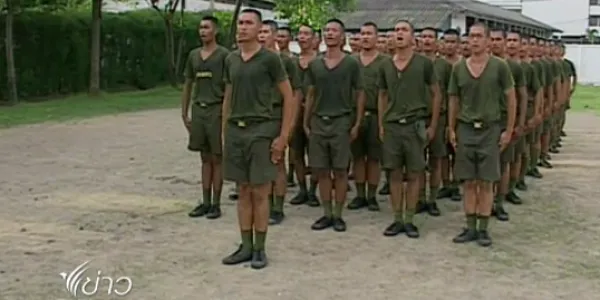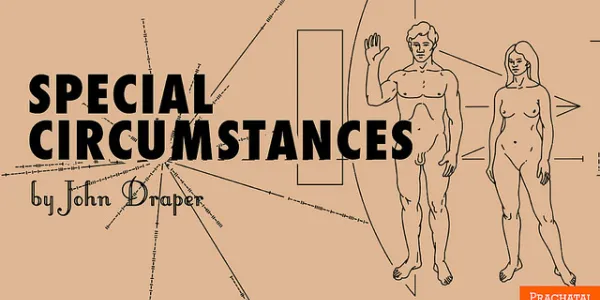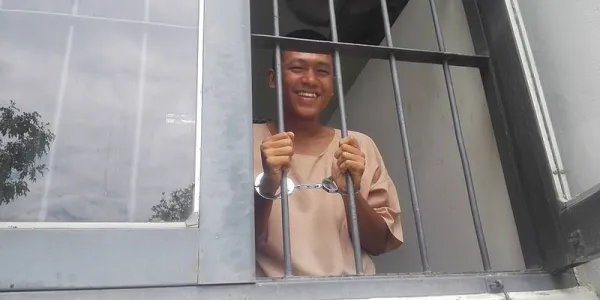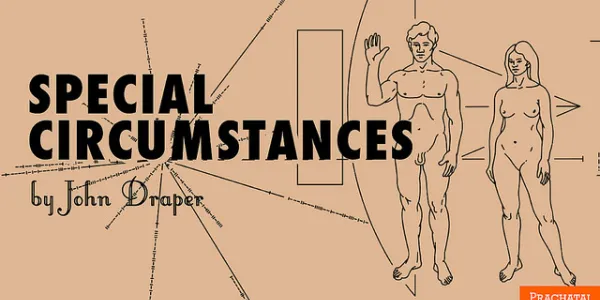By Harrison George |
<p>‘Govt sets B3 trillion tourism target’ reads the Bangkok Post headline (together with a pic showing ‘Chinese tourists at Wat Phra Kaeo’ who have fair hair and big noses) (the dastardly Chinese tourists must have started wearing disguises!).</p>
<p>So that’s alright then.</p>
By Harrison George |
<p>How’s your arithmetic?</p>
<p>In April this year, North Korea celebrated the 85th anniversary of the foundation of the Korean People’s Army. And it was no secret.</p>
<p>USA Today’s headline was ‘North Korea marks anniversary of its military with massive live-fire drill’. Reuters ran with ‘South Korea on heightened alert as North Korea readies for army anniversary’. The Daily Mirror: ‘Terrifying rally in North Korean parliament to mark army’s 85th anniversary as fears of war grow’. And lots more on Google.</p>
By Siwach Sripokangkul |
<p>On May 22, 2014 the Thai military, led by General Prayuth Chan-ocha, staged a coup d’état to end several months of political and civil chaos in Thailand. At its very basic level, the chaos was caused by an on-going conflict between the so-called ‘red-shirts’, followers of the government of Yingluck Shinawatra’s Pheu Thai party and comprising the rural voters forming a majority of the electorate, and the ‘yellow-shirts’, an alliance between the military, the Thai elite, and the middle-class Democrat party of Abhisit Vejjajiva with a strong following in Bangkok.</p>
By John Draper and Siwach Sripokangkul |
<p dir="ltr">Late last month, Private Noppadol Worakitpan died from cardiovascular failure soon after returning home. Allegedly, two other privates accompanying him informed his family he had been physically punished the day before, resulting in police investigations into the ninth such death within a decade. In addition to holding the perpetrators accountable for these crimes, it is time that Thailand replaced mass conscription with a national service programme to offer citizens a choice.</p>
By Atipong Pathanasethpong |
<p dir="ltr">My name is Atipong Pathanasethpong and I am the Spokesperson for the Project for a Social Democracy. You may have heard of my colleague at the Project for a Social Democracy, John Draper, the PhD student in Public Affairs Management at Khon Kaen University in Northeast Thailand who just over week ago offered to organize a mass surrender to the Thai authorities for attending the International Conference on Thai Studies in Chiang Mai, in solidarity with five academics and students charged with illegal political assembly there.</p>
By John Draper |
<p dir="ltr">On 19 July, 2017, Dr. Atipong ‘Tao’ Pathanasethpong, Spokesperson of the Project for a Social Democracy (PSD), and John ‘Special Circumstances’ Draper, member of the PSD Working Group, visited Mr. Khornchanok ‘Pob’ Saenprasert, Director of the Legal Centre for Human Rights in Khon Kaen and a representative of the Commoners’ Party of Thailand, and Mr. Tong, Co-ordinator of the Neo-Isan Movement, at the Legal Centre for Human Rights. The dialogue focused on the political future of Thailand.</p>
By John Draper |
<p dir="ltr">With a secret military court again denying bail last week to Jatuphat Boonpattararaksa, a law student from Khon Kaen University in Northeast Thailand, the regime is adopting show trials targeting university students, human rights activists, and academics. In effect, it is engaging in cyberwarfare against its own people, cementing a surveillance state. In addition, the military state mentality presents a clear and present threat to Thailand’s overseas image and economy.</p>
<p dir="ltr">Tools of the state. Political opportunists. Foes of democracy. These are all rather harsh descriptions of NGOs. But for Pinkaew Laungaramsri from Chiang Mai University’s Faculty of Social Science, they are truly the roles many NGOs have played in recent Thai political history.</p>
By Ralph Simpson |
<p dir="ltr">The US State Department recently issued its 2017 edition of the Trafficking in Persons Report (TIP Report). As might be expected, China, with over three million people living in modern slavery, has once again been downgraded to Tier 3 (countries whose governments do not fully comply with minimum standards and are not making significant efforts to do so), a ranking it held for a single year in 2013. However, one must ask why China was upgraded from Tier 3 in 2014, and why the downgrade now, for this is by no means clear from the reports for the two years.</p>
By Dion Peoples |
<p dir="ltr">The easiest Buddhist critical-thinking skill-set to recollect is found in the Visuddhimagga, a fifth-century treatise which borrows from the Abhidhamma. This expresses a coherent framework and structurally examines sila (moral regulations), samadhi (calming meditation) and panna (wisdom), through a fourfold-scheme to determine the characteristics, function, manifestation and proximate cause of the threefold-training.</p>
By John Draper |
<p dir="ltr">Far from costing governments’ and companies’ money to meet the UN’s 17 Sustainable Development Goals (SDGs), a major<a href="http://report.businesscommission.org/report"> report</a> by the Business and Sustainable Development Commission (BSDC), an alliance of business leaders, economists, trade unionists and civil society actors, details how businesses and governments can actually benefit. Asian businesses stand to obtain five trillion dollars in business opportunities from countries meeting the new ‘Global Goals’.</p>
By Stephen A. Evans and John Draper |
<p>In a televised address on 17 June 2017, General Prayut Chan-o-cha released ‘50 <a href="https://prachatai.com/english/node/7215">thoughts</a>’. The junta leader took great pains to emphasize that the ‘thoughts’ were not questions, and made it clear, in fact, that he does not necessarily want answers — he apparently simply wants the people to hear and to approve the junta’s principles and logic.</p>





